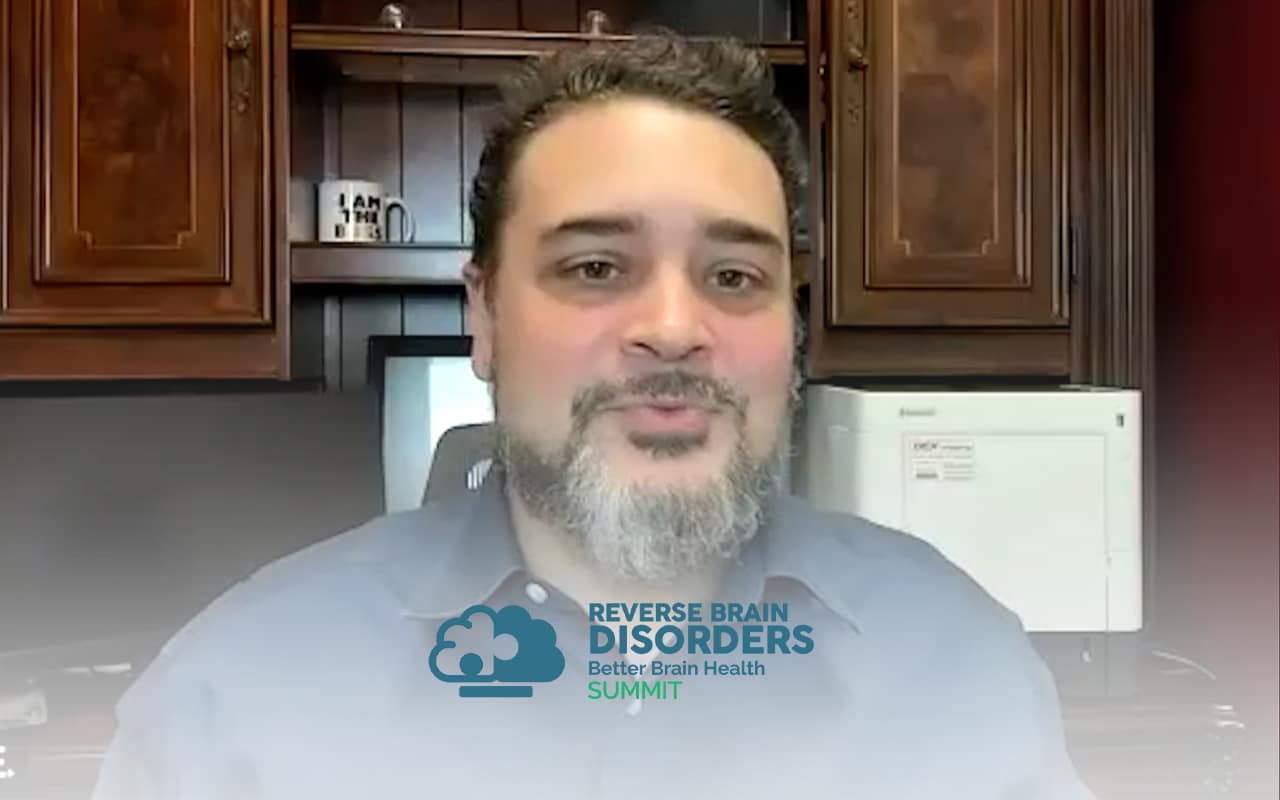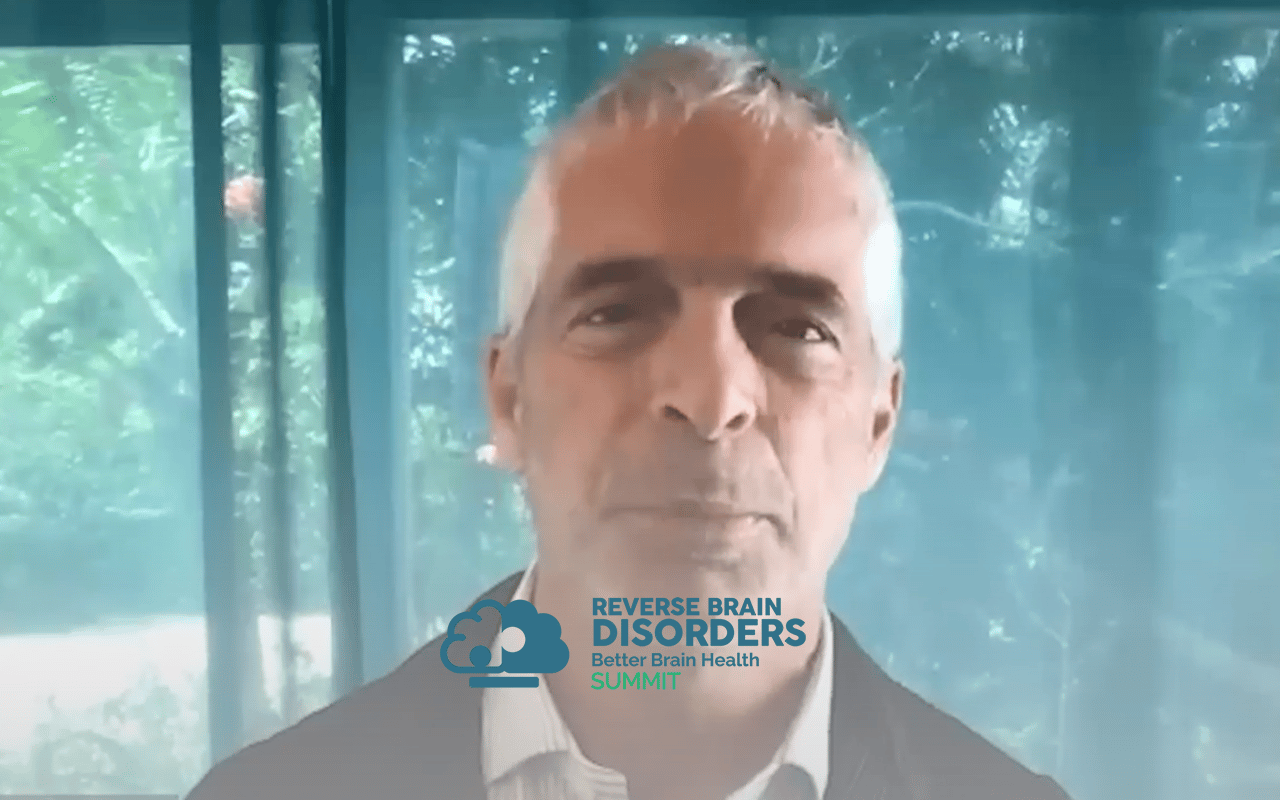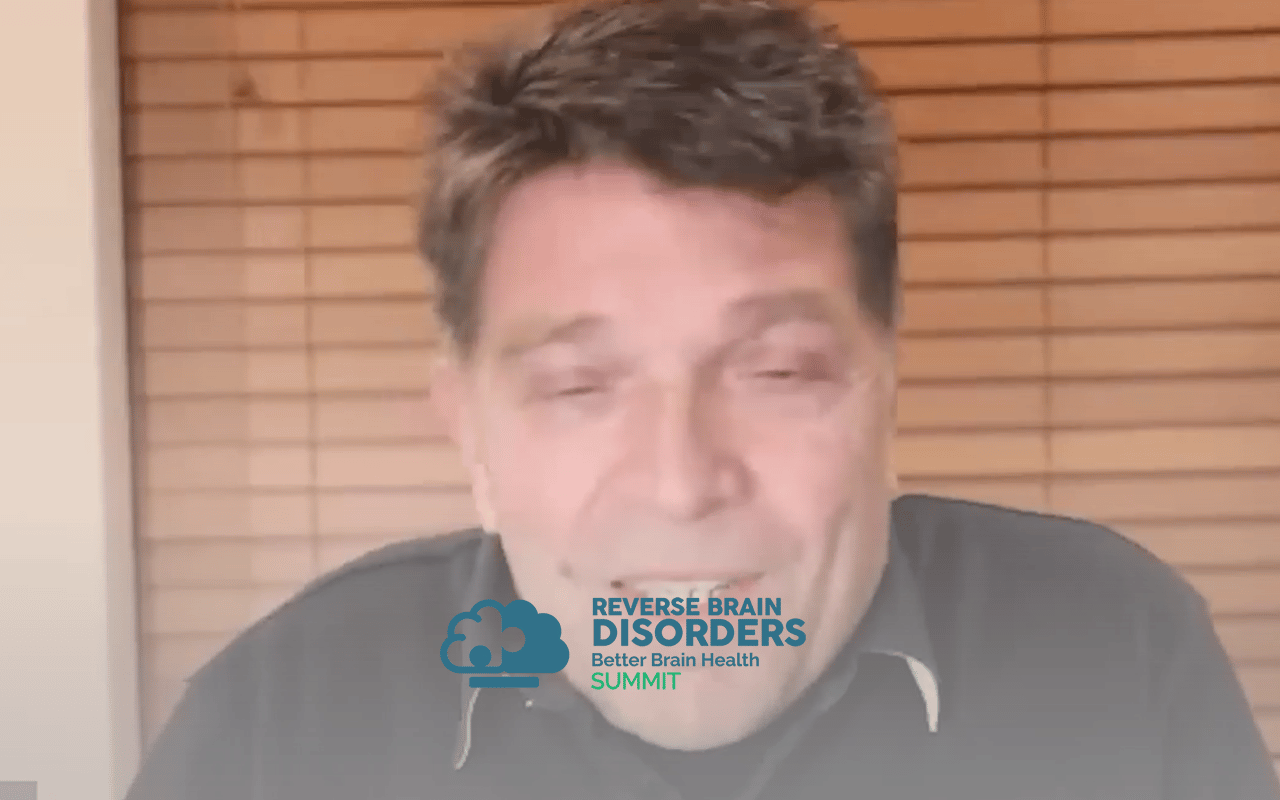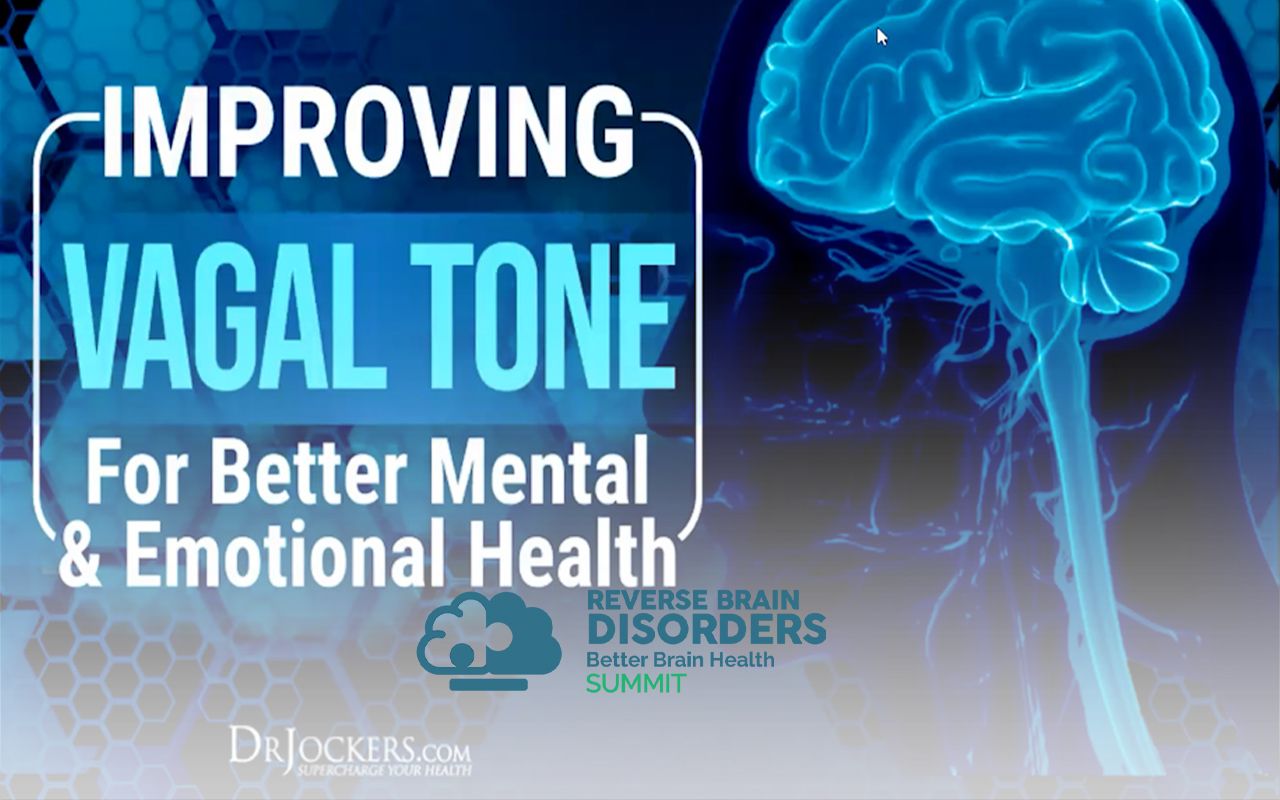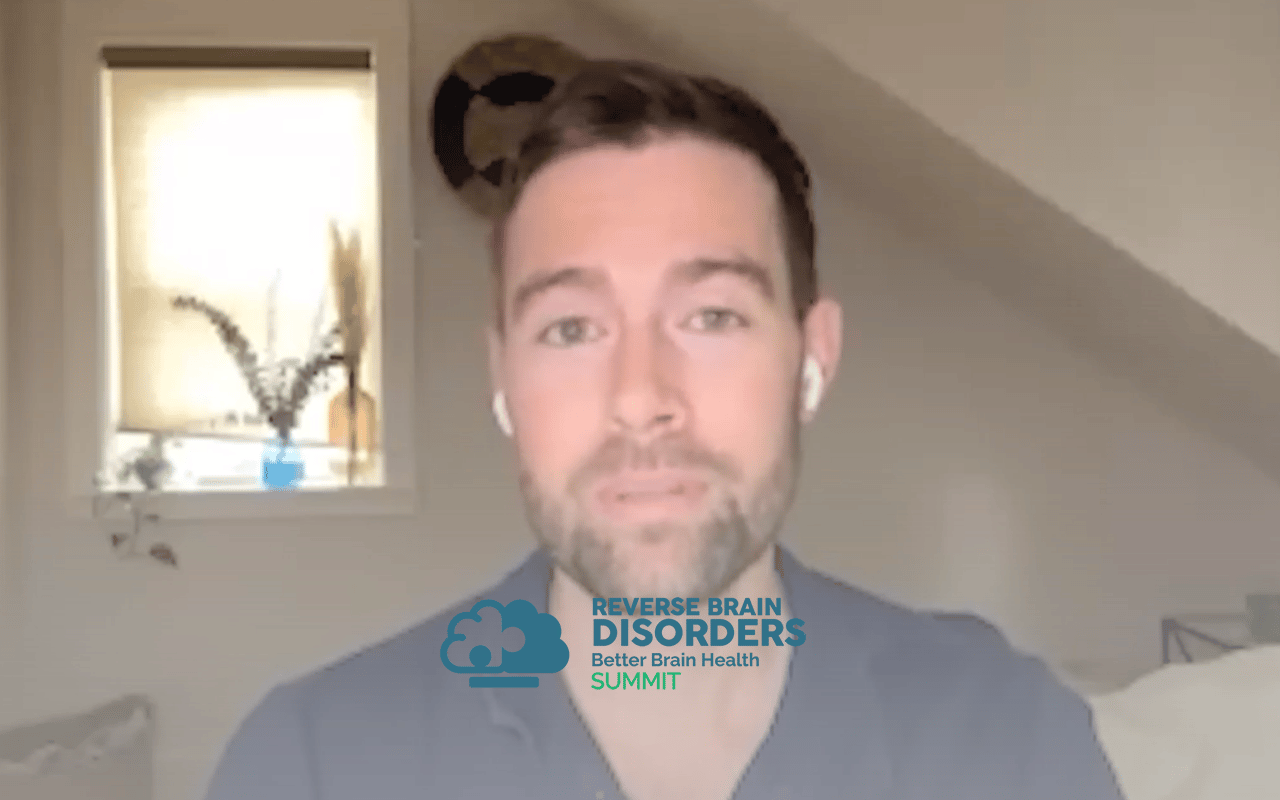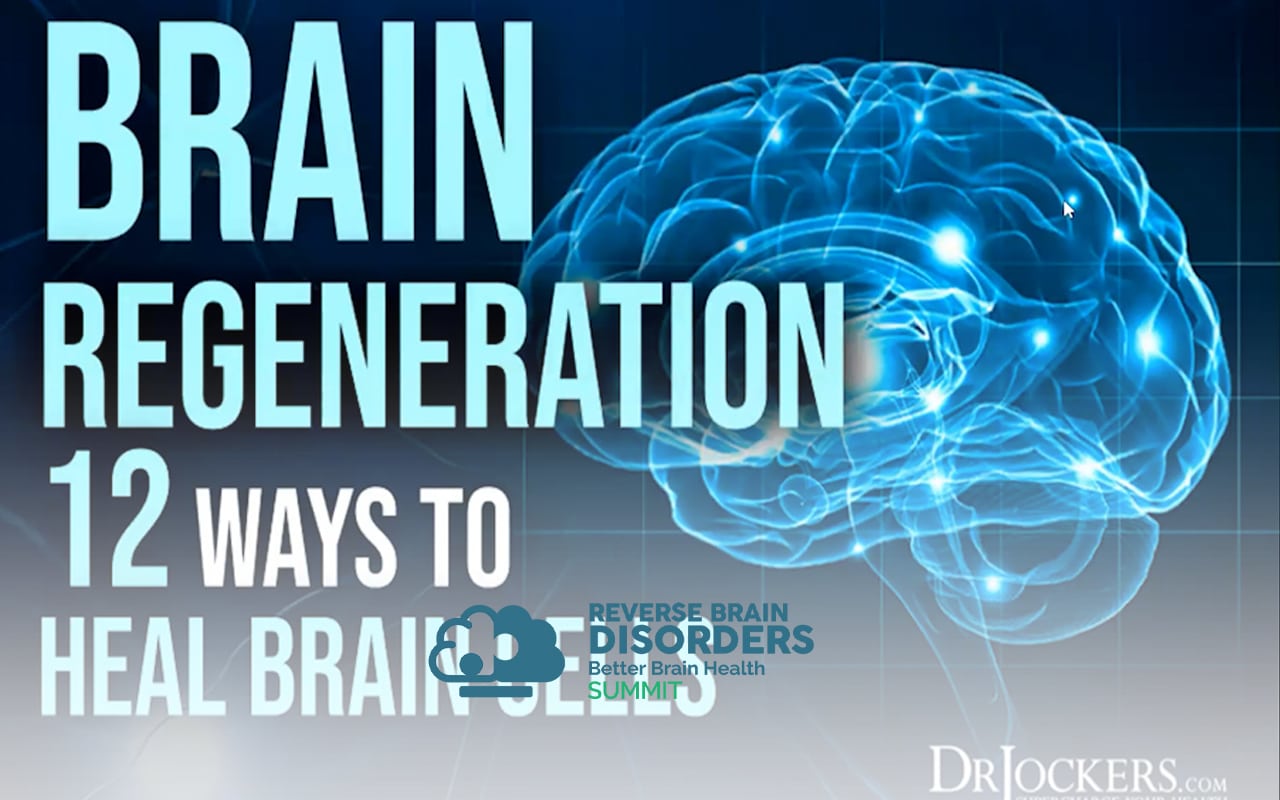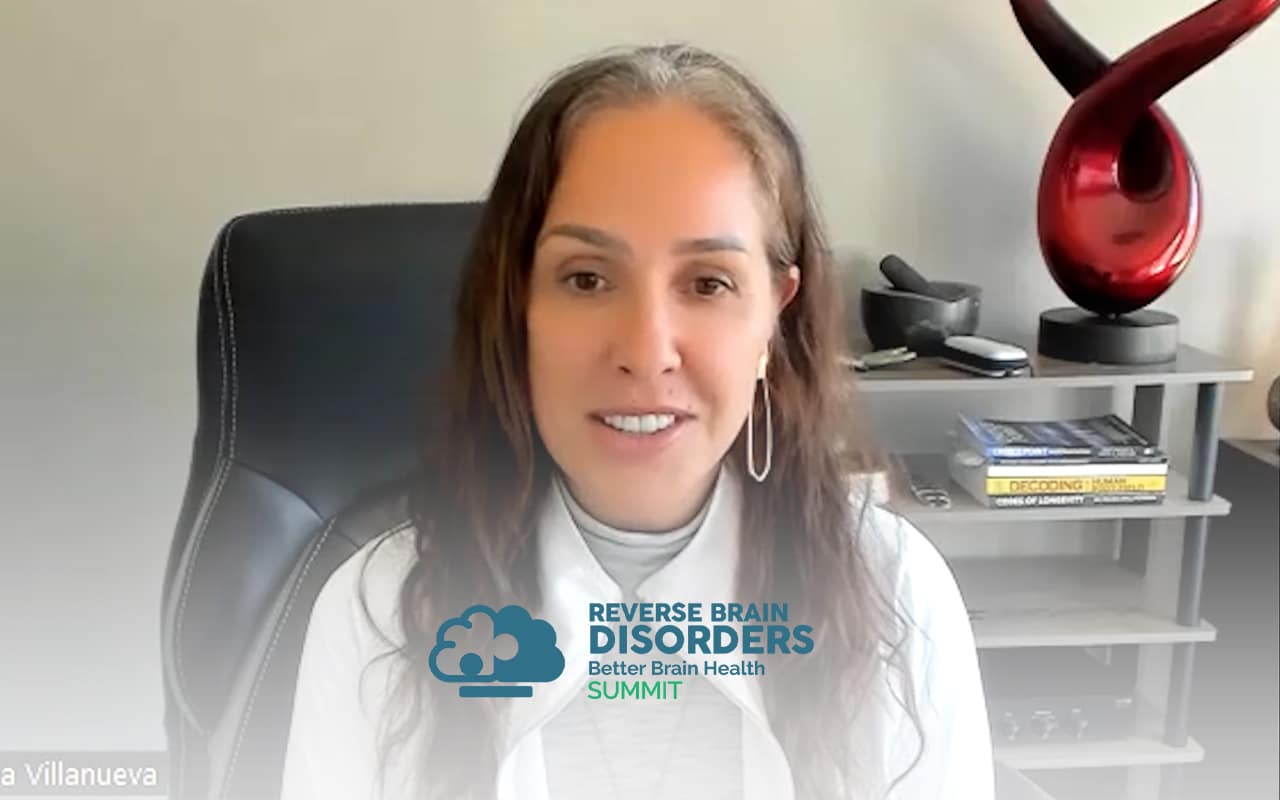Join the discussion below

Dr. Ruan is the Founder and CEO of Texas Center for Lifestyle Medicine. He devotes his career in practicing and building systems that allow for efficient delivery of healthcare. He is a board certified internal medicine physician but also have advised with companies to improve their workflow, company culture, marketing,... Read More

Yousef Elyaman, MD, IFMCP is a board-certified internist with a cross-specialization in pediatrics. He was one of the first IFM Certified Functional Medicine Practitioners in the world. He is also board certified in integrative medicine through the American Board of Physician Specialties. He is the medical director of The Guesthouse,... Read More
- How experiential trauma can affect digestion and food sensitivities
- How to create the ultimate mindset for healing
- How to recognize behavior patterns and interrupt to gain clarity in health
Cheng Ruan, MD
It’s no surprise that the ability of trauma psychological trauma emotional trauma creates much larger destructive processes than we could possibly know. I’m here to talk with Dr. Yousef Elyaman, He is the founder of absolute health in Ocala, Florida. He’s a worldwide national speaker on Integrative medicine, functional medicine and he lectures for the Institute for functional medicine as well as the international consultant on what it takes to create holistic strategies in functional medicine to create overall health. More importantly, he’s also the founding medical director at this place called the Guest House in Ocala, Florida, which is the center that’s really focused on overcoming trauma and addiction and other challenges in this safe and comfortable environment for healing. We want to talk about today on the physiology, actual physiology, how trauma affects our gut, our brain, our memory centers or emotional centers are immune system and what that really means for health. So, I can’t wait to introduce Dr. Elyaman. Welcome to the forum. I’m so excited to rekindle our connection again. Our first discussion was back in Florida before the pandemic and now we get to talk about a lot of this stuff now that it’s like 2022 we have a much better vision of what the stress and trauma like really does to to overall health. So, first of all, I just want to kind of have you introduce yourself and what you actually do when it comes to patients, where people that are going through things that are very traumatic.
Yousef Elyaman, MD, IFMCP
Yeah, no, thank you for having me again and always, always a pleasure, what I just a little about me, I am an internal medicine doctor and a pediatrician. So basically you can think of me as a family practice doctor and I take care of patients at you know, Cali Florida and absolute health is is our practice where we have health coaches, we have physicians, nurse practitioners P. A. S. But I also and in primary care in family medicine, you can’t avoid stress and mental health and and we we all we all have, I mean we if you’re human there you’re going to have stress and trauma and sometimes some mental health and spiritual imbalance. But I also certified in psychological trauma through Judy Crane who’s a world renowned in the trauma field and I work at her facility or a facility that she co founded called the guesthouse and the guest house is a trauma center. It’s a psychological trauma and substance abuse center and we actually get people from all over the world that come here to Ocala, Florida for that,
Cheng Ruan, MD
You know. Trauma is not an easy topic to talk about, especially amongst doctors. We’re not we’re not training to talk about it in residency in medical school. I mean we kind of are but kind of not right, we’re sure as hell trained to avoid it in the conversation, I think, right, but what we have to understand is loneliness contributes to the top 10 causes of death in the world, right? And by not addressing that it’s kind of a shame and actually creates a lot of burnout within physicians ourselves as well. So let’s talk about how traumatic thoughts shape our actual physical body. Yeah, Well that’s, so how traumatic thoughts, yeah, how traumatic thoughts shape our physical body.
Yousef Elyaman, MD, IFMCP
I’m still maybe give me a little bit more where you’re going with how, how they like an example of the physical.
Cheng Ruan, MD
Let me give you some examples, right? And this is what everyone listening to this has thought about before. Okay. Someone, experiences something And it starts as maybe a text message, a phone call or something on TV and they experience something is not right and they get nauseous, right? And their stomach gets a little upset. Now if you’re really traumatized, you may even throw up, right? Or if you’re like 50% America, you may want to go to the bathroom, you start pooping right, your bowel syndrome. Right? Okay. So there’s so many physical manifestations of when someone receives a thought process. So let’s start with how that works. Maybe like a gut brain connection or something.
Yousef Elyaman, MD, IFMCP
Yeah. So traumatic event that you’ve had in childhood and may and hopefully we can go back to big T and little T trauma because there’s a differentiation that that’s been a big issue. Actually for me in the beginning to wrap my brain around things that they were calling trauma that I didn’t think we’re trauma, but we can get back to that. But yes, when you are in a situation when you’re in a, when you’re in a a stressed unhealthy state and then and and then usually there’s more of a chance of maybe you can call it being triggered. So when you’re in a one of the emotional state, that is not that that that is, that is not zen, what can happen is is that you could see something or hear something or smell something that your subconscious mind will be triggered by because it’ll remind you of that event where you felt like your life is in danger. So what ends up happening and this gets really interesting because it goes way beyond what people think, but what can end up happening is that you go into this hyper what we call a hyper vigilant state, like ready for what can kill you, adrenaline is released. Cortisol is released when adrenaline is released, your heart rate can go up, you can end up with a with a dry mouth, you can end up with some vision changes, you can see far, but you can’t see close and you can end up feeling your heart beating really hard, kind of out of out of its chest, but like you mentioned as well, you can start sometimes you can you can feel some gut issues.
So you can feel like nauseated, you can feel like your stomach stops moving, but I’ll tell you something that’s even even more mind boggling. There are people that live in this chronic hypervigilant state. They don’t, it’s like they stay in this traumatic state and they’re hyper reactionary. And what can happen is that there since their body is looking for anything that can hurt it, they could eat certain foods and those foods, let’s say a large amount of that food would bother them. So a large amount of the food would bother them. They eat a little bit of the food and they have a reaction. So a lot of these food reactions that we see as integrative and functional medicine doctors, a lot of those food reactions that we see sometimes is just the body being in this hyper vigilant state. And when you work on trauma, they can actually start eating those foods that they can’t eat before.
Cheng Ruan, MD
Yeah, So this is what I like to call drinking a smoothie while running away from a tiger. It’s like you’re you’re supposed to be in the spotter of flight, but then you’re like, you’re you’re doing something that’s counterfeit fight or flight, which is nourishing and the food that’s supposed to be nourishing creates issues or body, you know, develop tack molecules towards the antibodies and stuff like that as well. And so yeah drinking a smoothie will run away from a tiger and now, But but you know, we can appreciate that this happens acutely this happens in the, in the short term, right? But what happens when this happens consistently and it doesn’t and it goes unchecked? What happens in the long term?
Yousef Elyaman, MD, IFMCP
Yeah, when the long, unfortunately in the long term, what happens is your body starts to poop out, Your brain gets overworked and it can’t detoxify and you can end up with dementia, your, your cardiovascular system gets burnt out your body when you’re in that when you’re in that state, actually your blood vessels constrict and and they decrease blood flow to different parts of the body and actually your uric acid can go up and you can go into a fat storage hibernation state along with cortisol as well. But I’d like to go back to that. I’d like to go back to the foods that bothersome foods and these are just things that these are just some things that I’ve seen in practice. Like I’ve had patients that would eat a certain food during or around a traumatic event.
And then just psychologically when they eat that food again, they have that same type of reaction. Like for example, I had a patient that ate a certain ate blueberries and then went for a run and it was really cold outside and felt short of breath and then she and then it stressed her out too and it actually turned into a panic attack, but she felt like she was dying and then from then on she’d eat blueberries and then that would happen and then she was worried about the different foods and and that started to happen. But there’s also there is another piece that that is interesting and it’s just theoretical but I find that I find it to make sense and that is if you drink, if you drink your eight glasses of water a day that’s great. But there is a certain amount of water. If you drank too much water it could bother you. Or let’s say let’s let’s say that let’s just say blueberries are healthy but if you ate too many blueberries you kept eating and eating and eating eating blueberries something there could be something in the blueberries that would bother you maybe but a small amount and and one of the thoughts is is that a small amount of maybe a toxin in the food or maybe they call them elections in the foods that would normally bother you if you ate a large amount your body because it’s looking for what can kill it.
It detects that small amount and it has a reaction. So that that was kind of what I was, where I was going with that but I would like to talk about the whole big T and little t trauma because trauma all of a sudden trauma became this hot topic and it’s it’s the new thing and people are talking about it but Judy Crane, the co founder of the guesthouse, she was been talking about it for years and that’s part of why. Yes, I worked at the guesthouse but I went and I was certified in her training course or provider training course because I wanted to kind of get to the bottom of it. But so as a physician in the beginning and this is where I had trouble wrapping my brain around it. I would think that like if your arm got ripped off or somebody almost killed or raped or something like that, that was a traumatic event and it could create a response but it turns out that there’s something called little T trauma where where things were events that happened to you that that they they events that happen to you over and over or when you are in a in a in a stressful state or not in the right mindset, they also can have the same response and I’ll give you an example.
So actually things that you wouldn’t even think of being traumatic. So this this is a common one patient that his mother or her mother would do their homework for them and they would do not do their homework, they the person would do their homework and they turn it in and their parent thinking trying to be a good parent would correct it and every time this person does their homework, the parent corrects it eventually, eventually they grow up feeling like they’re not smart enough, right? The parent was trying to do good, the parent was trying to good and the and not not a bad parent, but the parent in overly trying to help their child actually, it ended up hurting their child. But then then, and this brings us to another concept, it’s not about right or wrong, it’s about what is and what was, so sometimes we want to blame and we want to say this was a bad parent or this is a bad person and sometimes it’s just it’s just what happened and how it affected us.
Cheng Ruan, MD
Right, right. So you were saying that the little t. Maybe things that we thought were just kind of normal things, that upbringing, that’s our parents showing us love, but but that process no longer serves us as an adult and therefore it can become traumatic and that’s the little T. That’s sort of the subconscious side, right? And the big t. Is like the big thing, you know, concussive injuries and raped and and a combat veterans going through all that stuff stuff. That’s the big t. Right? Yeah. So, so I guess technically we we all have our own levels of little t, right, no matter who we are and I, you know, I want to go back to something that you said that I think is powerful makes me really emotional is that there’s no such thing as right or wrong, you know, and you have a bunch of kids, How many kids do you have?
Yousef Elyaman, MD, IFMCP
Seven.
Cheng Ruan, MD
You have seven Children? I have three. And I thought it was a law. So both of us, you know, being fathers and I’m sure you’re the same way as me. And I was like, oh my gosh, am I raising my kids, right? Am I doing, you know, X, Y and Z? And then it’s my perception of what’s right, actually like hurting my child and stuff like that. But what you just said, kind of maybe we’ll wall up a little bit is that there’s no such thing as like right or wrong. There’s just is and I guess we just have to kind of build resilience around it right? And have the open communication, which is the opposite of me growing up in China. That’s as we don’t we don’t do anything, we don’t talk about stuff, right? And so I think that’s part of my, maybe my little T. Two is that I do have a cultural bias against, you know, talking like this and it’s created little bit of a torment for me. And so how about you? Like how do you balance that as a parent? Like how do you know?
Yousef Elyaman, MD, IFMCP
Yeah. So there’s two issues that you brought up. One is one is the what it is just it’s difficult because of the way we’re raised, it’s difficult to even talk like this. But the other issue is the parenting. So yes, absolutely. As I went to these trauma, as I was doing these modules and I was training, becoming that trauma trained trauma informed provider. I I or a practitioner, I should say I was you sit and you hear the things that people went through that bothered them and you just feel so guilty like, oh my God, I’m messing my kids up. But there was actually a lecture that we heard in one of these modules and basically said that you know what we all you never know, everybody’s so different. So you never know exactly the right thing to do with Children. But this is what he said which made me feel better that everybody kind of makes these mistakes. But Children know deep down your intention and as long as your intention is good, even though you might mess them up a little bit, you probably will mess them up a little bit if your intention is good and it’s with love, it’ll be alright, they’ll be okay, we’ll work through it.
The second thing you mentioned is something very important. I’ll tell you in my life anyway because it kind of hints and moves towards something that has been transformational in my life. And that’s Rumi’s poem called the guest house so roomy I’m sure a lot of people if not google rumi he is a he was a Islamic thinker but but people of all faiths like that that are more into spirituality, love some of his poetry and he had a poem called The Guest house and in in in this poem it’s short. I recommend everybody read it in the poem. What he mentions is that these different emotions, the negative and the positive. He calls them all guests are honored guests. Now here’s the thing about here here, let’s take it back a little bit. So the way that a lot of us were raised is that you cannot show emotion.
You’re allowed to emotions most of the time you got to be happy. And sometimes if it gets to be too much, that lid kind of pops up pops off and you get angry and then you can’t be angry for too long because that’s not going to that that’s not gonna go well. And what happens is is that especially it’s sometimes gender wise like a man can’t be afraid, right? He can’t be scared. He can’t be he can’t feel insecure. So you just have to feel you just have you have to put on a front and you have to pretend like you’re happy or get angry and you kind of go back and forth. And what happens is that just from my understanding of the poem that each one of these are honored guests and they’ve been sent as a guide from beyond. So how has that changed my life? Well you mentioned before, oh listen, so number number one, it’s a gift. Right? So this thing is a gift that’s been given to us. So I have a narrative that I tell myself when I start to get triggered when I’m in that state, you all know how it is. You’re with your wife or with your husband and they’re the best wife or best husband in the world. And you get triggered. And then all of a sudden that’s the worst wife or the worst husband in the whole world. And not only that I can remember everything bad they’ve ever done and they’ve never really cared about me, it’s because the brain went into that state looking for what and right, right and so on and so forth. But so when you start feeling that state, what I tell myself is, I know I feel like it sucks. It always sucks and it always will suck. But the reality is this will pass. And according to Rumi’s poem, it will pass. You just, you have to invite it in. So I say I tell myself I have to feel this. If I don’t feel this, then I’m going to get worse. But if I feel this, if I say bring it, if I bring it in, then what’s gonna happen is it’s gonna clear me out and I’m gonna be better than even before this even happens. So I sit and here’s the key. This is the thing that I would tell people this and it works.
Sometimes it doesn’t work. Sometimes we’re always, when we feel uncomfortable, we try to fix right, we try to fix it with action. We try to think about a plan or a solution. So this is the hardest part. You have to turn off this frontal lobe, the thinking part. So you stop and you say bring it and you feel maybe do some heart breathing right? And you just hold it and you just keep saying, bring it, bring it, bring it right. And and and what happens is that if you run from it, it gets bigger and bigger. But if you actually sit and embrace it and you feel it and and with turning your brain off this is the key. Because people will start thinking and thinking and thinking and ruminating and it will cause a problem. So if you just feel it turn the brain off and just say, no, feel. And then maybe do some heart breathing in through the heart and out through the heart. Then you hold it for as long as you can and then there’s different processes you can do. But then you go on about your day. What I have found maybe an hour later, maybe two, maybe three hours later. But I end up feeling more balanced now what would have happened before is I would have, I would have, I would have made positive thought through it.
I would have been happy, happy, happy, but really there’s something going on in here and then I would have got angry and then it pops angers over and I go back to being happy, happy, happy again. And that really doesn’t serve and that doesn’t serve anybody so anybody around. But but that actually brings me to another point. We all want to, we want to be aware, we all get triggered, right? So we all want to be aware of what it is or how to tell if you need to sit and feel and if you need some of that just to sit with your emotions right? And so so so I’ll ask you, I’ll tell you what mine are and then maybe you can tell me what what yours are. So I learned from from Judy Crane, the founder of the guesthouse. Yeah, she’s an author as well, trauma heart. So so what so what she said is I can tell when I stop saying please and thank you and I stopped putting the shopping cart away at the grocery store. You all know how sometimes you just put that shopping cart like to the side and run right and go since judy crane said that the shopping cart I am I always put that shopping cart away because I know to me it’s a measure of my state right to me. So for me personally, I can’t tell if I’m getting, if I’m, if I need to sit with my feelings, sit with my emotions or sit with maybe even some of the negative ones if I I like to joke right? So I like to make jokes, I like to, let’s keep everything lighthearted. But if I’m overly joking to where I can’t get work and no one else can get work done. That’s what I know. That’s me trying to treat myself right. That’s when I know I need to sit a minute, maybe five minutes by myself and do this feeling. The other thing for me is I myself, I’m not judging people, I’m looking at, you know, look at looking from their point of view because I haven’t, I don’t, I don’t know, I haven’t walked their chutes and when you know their story, then their actions make sense. But when I start being hard on myself that negative self, oh, you’re so stupid. You’re so dumb. Why’d you do that? Or if I start being hard on other people, I know I need to take a break. So what are yours, how can you sell?
Cheng Ruan, MD
So it’s pretty identical. You know, for me my big issue before was been GP I mean, that’s how I dealt with things, right? And I identified myself as a positive thinker. So whenever I have a negative thought, I’m like, well, why, why am I have a negative thought? It doesn’t jive with my identity. And then sort of, that, that sort of feeling like, oh, you’re stupid, you’re your x, y and z right comes through and everything becomes a catastrophe at that point, right? And there’s sort of a blow up period. But for me is actually making my bed, so if I if I don’t do it, and if everything’s in disarray, it really drains me like, the rest of the day and that really affects my, the way I eat and advice notice, oh my gosh, I’m bloating and whatever, Whatever. If my eczema is like acting up, then I have to take a chill pill. I’m like, all right, Like, what happened in the last 24 hours? And then I really have to give myself a time out because I’m the same way as you. I keep everything light hearted to help connect with people, but that can come at a detriment. And so I have to just sit back and say.
Okay, let’s kind of go through the last 24 hours, okay, let’s go, let’s go through the last 48 hours, like, what exactly happened and then I let the feeling and there’s sort of the piece that really comes over me as well. But that’s after I went through a lot of the mind body medicine training as well.
So this didn’t come like naturally. And it’s, it’s not something that people understand, especially in the medical profession. You know, we, as doctors were taught to do the complete opposite of of that that we just talked about, right, push your films. Yeah. We’re taught to fight patients are more more important than you. Maybe the more important than your family. Therefore you must sacrifice everything and not feel anything and then exclude yourself. Right. Even the continuing medical education courses when I was at, when I was at Columbia, they’re, they’re like emotional playing was to like isolate and just just just step back and then avoid, right? And then all they care about is you don’t do anything that’s with like that goes towards malpractice. But then you never deal with the actual situation in the first place, right? And so in fact I talked about this right before you come on, I was talking with the military surgeon and just the same way the military, you’re taught to do the exact same thing. You’re taught to like avoid that and kind of buried it. But it’s very counterproductive and it really shows up in your health. So I’m very similar to you in that regards as well. Yeah.
Yousef Elyaman, MD, IFMCP
And so, so they’re the interest. So just kind of going, going like further into what’s what’s happening when we’re triggered, our body is trying to protect ourselves, right? So we we feel that uncomfortableness and we want to go into fight flight freeze. And then if it’s chronic, we go into what’s called fun. So fight you, you do something about it. So when you’re for binge eating, when you have that feeling and then you you want, you want to change that state, you want to do something to change that state. You don’t like the way it feels. So you go and you eat something and those endorphins are released and the serotonin is released so that you’re you’re actually doing something about it, right? You also, it is a way of flight to, because you don’t have to think about it because you’re eating right.
Some people will get an argument with their wife or with their husband, right? Because they are… because now they’re it’s better to be angry than to be sad, right? It’s it’s more you’re less vulnerable, right? You can but you can’t fight, you do flight, you can freeze up. Some people freeze up and they just can’t think, right and that’s where they need to do something to kind of pull out of it. And then fawn is when people are just chronically doing this and they just go through the motions and I would say that if somebody feels like they’re just going through the motions every day, you got to do something to pull out of it, you really want to do something to pull out of it. But here’s the other key. The other piece, Right? That and I like picking up these phrases because I remind myself of these phrases when my capacity really isn’t there to kind of so that it sets and so that I can, it’s kind of like just a reminder to snap me out of it.
And one of the phrases is is that if you want to be well, you have to be comfortable with feeling uncomfortable, you have to feel you have to be okay feeling uncomfortable because whether it’s binge eating or gambling or sex or drugs or whatever, arguing or fighting, you feel uncomfortable and you try to change that feeling and by changing that feeling, that self destructive behavior, the rumination, you kind of go down that vicious cycle so you just have to stop. I feel it turn off my frontal lobe now by no means am I trying to replace counselors? We work with counselors, we work with therapists. We work with the ones that called work psychiatrists. Like that doesn’t replace. Yeah, this is that I’m not saying if you have schizophrenia, you just sit and feel your feelings, you’re fine. But what I’m saying is that in general, I think for everybody, a good prescription is reading that poem, the guesthouse and implementing in their lives.
Cheng Ruan, MD
So I’m going to read the poem because it’s in front of me and I haven’t read because I’m paying attention to you. So let me read the guesthouse. So this is the guest house by Rumi. So for those of you who want to google search it, the author is Rumi, Rumi. So this is the guest house. This being human is a guest house every morning. A new arrival. A joy, a depression, a meanness. Some momentary awareness comes as an unexpected visitor, welcome and entertain them all. Even if they’re a crowd of sorrows who violently sweep your house empty of its furniture still treat each guest honorably. He may be clearing you out for some new delight. The dark thought, the shame, the malice meeting them at the door laughing and invite them in. Be grateful for whoever comes because each has been sent as a guide from beyond. That gave me chills. That’s awesome.
Yousef Elyaman, MD, IFMCP
We’re just reading it in English like I’m sure in Persian it’s like in Farsi it’s like even more rhymes or whatever happens in Farsi poetry. So each you think about gratitude is mentioned there so be grateful for whatever comes and then not. It’s not like why is this happening to me know each has been sent as a guide meaning and that’s why I tell I have, I tell myself the narrative I need to feel this, this has been sent to me to transform the frequency of my soul, if I feel this and I then what will happen is is my soul and this is just how I think about it. My soul is transforming to a frequency that’s more compatible with the next realm, all right, Or the next the next dimension. So it’s transforming me if I feel it. But if I try to run from it, or if I try to think through it, if I try but the gratitude is there and also feeling even those negative feelers and saying that he may be clearing you out for for a new delight because maybe there’s too much going on, you feel the emotion it passes through and now you’re ready to receive its clearing you out.
Cheng Ruan, MD
That’s an amazing constant. Now tell me this. And because you see these patients, just like I do a lot of times you try to get people to recognize that there may be trauma, that that’s creating a lot of these symptoms, right? And we’re not saying, hey patient, you’re crazy. You know, we’re, we’re saying that a lot of it comes from previous events, right? And then we’ll be like, oh, you think it’s all in my head? I’m like, thank God, that means we can do something about it, you know? But a lot of these symptoms are seen a very reductionist IQ way in medicine. It’s sort of the fault of medicine, right? You have these set of symptoms. So, you, you know, you file under this thing called fibromyalgia, right? You have these set of symptoms, This is, you know, complex regional pain or whatever it is, right? But in reality the experiences that we’ve had, it’s correlating with these symptoms that can be either generated or that can be taken away. So now a lot of people were thinking, oh, it’s because my iron is low, or my B 12 is low or I can’t methylate or I have M T. J far, I have explained to you have too many toxins in my body. Right? So how do you relate that physical reductionist view of medicine to our experiences? How do you connect that together?
Yousef Elyaman, MD, IFMCP
Yeah. And I think that’s why you and I both do functional medicine, right? Because that’s why we practice functional medicine because we understand that there are that there that there are different components that can contribute, right? There’s mediators and contributors. So if I have a mess magnesium deficiency, then it will be easier for me to get triggered. And it will be easier for me to have an anxiety attack, right? And I’m not gonna feel well, which is gonna throw off my psychological spiritual state. But you know, the more I do this, the more I realize that it’s that heart and the mind that really drives the healing, even the drives to like taking that vitamin D. Or taking that magnesium with the right mindset versus I’m never going to get better right. You see you see a great you see a correlation but but here’s the thing I actually I’m glad you mentioned that because I want to mention just a couple of things that we see that do contribute. And that can help. So we check something. The regular labs do it called a red blood cell, magnesium and Rbc magnesium. Because magnesium, the normal magnesium tests that you do in the lab is going to is going to look at the minority of your magnesium. Why? Because the magnesium is inside ourselves, most of it is in ourselves. It’s not in the water in our blood. We check our plasma for magnesium which is the water and blood.
So you can check how much is your red blood cells. And what we’ll do is we’ll get their red blood cell magnesium level up to around six we get to a higher level. And that can help with muscle spasms and it can help with constipation. It can help with fatigue. Some people with chronic fatigue syndrome. They’re just magnesium deficient. The other thing that we check and we do all this at the guesthouse by the way when our clients come in and I do this. Outpatient with my primary care with my family practice patients as well. So we’ll also optimize their vitamin D. Because if your vitamin D. Is low it can throw off multiple things. We also there have been studies that are looking at people that went to the E. R. And those patients for anxiety or panic attacks and they have lower B. Vitamins. And some people like you mentioned methylation mth fr. Some of them they can’t activate these vitamins as well. So we’ll give them an activated B. Complex. So there are these things we do. There’s a test called a home assist which I’m sure you’re familiar with. Well check homocysteine if that’s high. That means you’re not methylated. But it’s hard because what came first the chicken or the egg like is your magnesium deficient because you’re burning it up so much because your adrenals are constantly stressed or is the low magnesium deficiency what caused it in the first place? I mean who knows? We’re gonna start somewhere, We’re gonna work on exercise, we’re gonna work on nutrition. We’re gonna get the magnesium level up and we’re gonna work on how to deal with those emotions.
Cheng Ruan, MD
Supplementation never cures anything. We have to deal with what’s inside of us right? Because a lot of these things are just allowing us to work with nature. You know once we supplement magnesium we’re still working with nature right? But you’re right like what came first the chicken or the egg. You could be constantly stressed ever since. You know you’re 12 years old or something like that, right, your body is always in fight or flight, you don’t get enough sleep. So much so that is not enough time for the gut microbiome to heal. And then you absorb less, you’re really on the, in the gut becomes a whole lot more blunted. You can’t absorb those ions anymore and maybe that was the issue. Right? But you’re right, you gotta start somewhere. In reality it doesn’t really matter what started what? Right? We don’t want to put the blame on one thing. Oh I have a low magnesium there before I have this, I have low thyroid.
Therefore I have this. People who are chronically stressed is supposed to have lower thorough because the body thinks they’re dying and it’s going to down regulate your production, right? It’s gonna take us all down regulate production and that’s what naturally happens. So we can’t be too reductionist in the way of looking at this and saying these labs are off, let’s corrected. That’s just half the game. The other half of the game is let’s talk through the experiences of the view as a human, not as a disease state as a human. And that’s what’s beautiful about functional medicine. But then when you put a lot of the trauma and the mind body Sprinkle that into a lot of the functional medicine, the things that we do that’s where true healing, you know, really, really starts. And you know, whenever, whenever we have, whenever we see people, I’m sure the same way is that the biggest successes always comes from some sort of realization into like a poem like this, like the guesthouse, Right? And that’s where all of a sudden there’s physical manifestations of change. Do you experience that as well?
Yousef Elyaman, MD, IFMCP
100%
Cheng Ruan, MD
Awesome. And so what do you think is going to be? Some really easy step because a lot of people who are listening to this right now, they’re thinking, oh my gosh, like you know, I have some memory issues, chronic issues. Do I have any trauma? Do I have any big T or having a little T or some people will be like, I know exactly what happened, you know when I was six years old, right? Where you’re talking to them right now. So where do they start?
Yousef Elyaman, MD, IFMCP
Yeah, so where to even start? So I can, you know what? I have a prescription recommendation that I will give patients often and I can share that with you guys today. And the ones that do it, they actually find they they find that they do better. But so I’ll mention that kind of that psychological spiritual prescription. But I think that eating six servings of vegetables a day is extremely important because it helps the body rebuild and can actually help with mood. And there’s a a study called the smiles trial and the smiles trials, reduction of depression by eating a healthy Mediterranean food plan. Right? So we also, so try to eat that balanced six servings of vegetables, two servings of fruit today exercise is extremely important. There’s research that shows that that if you go on a walking program versus taking PROzac, you do exactly the same when it comes to mood. But the one that walks is probably healthier. So start doing some sort of movement or exercise every day, right? You know, your limitations. Talk to your provider, whatever you’re okay with. So those are things. But I’ll tell you, I’ll tell you this prescription that I give people. And then I follow my follow myself. So you sit twice a day, you and I go with the threes, take three deep breaths, right? Be? Imagine that you’re surrounded by energy surrounded by your higher power and your higher power is connecting you to everything to everyone. And you start by saying, you start by first mentioning three things you’re grateful for. I’m grateful for my family. I’m grateful for my practice. I’m grateful for my great friend Cheng. We’ve been friends for how long now? Thank you. Thank you God. Right? How long?
Cheng Ruan, MD
I don’t remember. It’s been at least 6, 5 years.
Yousef Elyaman, MD, IFMCP
Yeah, 5-6 years man. So it feels like forever. And it feels like the other day. So, you mentioned three things you’re grateful for. Then you mentioned three positive affirmations. Part of the trauma is these traumatic toxic thoughts that have been planted in her head. Like if every time you make A B. If you make all A’s and one B, why is it A B. This isn’t good enough. This isn’t good enough. This isn’t good if eventually what happens now if my kids you’re watching this, I still want you to make all A’s, right? But I’m definitely causing a problem here. But the thing is, is that you get that message that I’m not smart enough, I’m not good enough, I’m not the brain the brain locked onto that. So now when they’re not successful, see, I’m not good enough, or see why does this always happen? There was like 1000 things good that happened to you, right? So, but why is this that one thing? See, it always happens to me.
I’m unlucky? Like, so these things that we’ve picked up when we were younger, that were programmed when we’re younger, it’s because it had the thought was planted and it was reinforced and reinforced and reinforced by our own brain saying, see, because it’s looking for patterns. See, I’m not smart. See, I’m not smart. See, I’m not smart. Oh, she corrected my homework again. See, I’m not smart. See, I’m not smart, You’re not smart, right? So, because we literally have thousands and thousands and thousands of times of that programming. We want to rewrite that program. So I stop and I’ll and I’ll say, what does my heart need to hear? I’m smart, I’m funny, right? I’m fit, right? I’m a good man, whatever it is, but not something memorized. Something that comes to your heart, You’re like, what is my heart need to here today? So you say these positive affirmations now, you don’t want to become a narcissist, right? So if you so what you can do is you can say I’m highly intelligent, thank you God, or thank you higher power, or thank you universe, or whatever you’re saying thank you to. Right?
So if you think if you don’t take credit for it, because if you if you ifyou just are humbled by this gift that you’ve been given, I’m smart, thank you. I’m so you but you mention three things that your heart needs to hear, make them very positive, then you take it off yourself, take it completely off yourself and think about other people. You think who needs positive energy, who needs a prayer, you stop? It might be somebody you ran into in the supermarket and you made contact with their eyes and you never saw them again and you don’t know their name. You send please give that person hope. Please give that person success, please help make that person wealthy, please help that person, know that they’re enough. Please help. So whoever it is, whoever comes to mind and I say three because you don’t want to make it this long thing that you don’t do, your minimum is three if you want, you could spend hours just going through as many people. You want to pray for it as many offer.
But I say just stick to three because you’re trying to get a routine, you’re trying to get a habit going, you’re doing this twice a day, you can do it in under five minutes. So you mentioned three, you pray for three people positive and then you ask for three things and then for the three things, if they’re material things, say if it is best, right, I could, I could win the lottery and I can buy a Lamborghini and I can get a car accident and die, right? So knowing that there is a greater wisdom and sometimes the things that I feel like are not beneficial are beneficial or and things that I think are beneficial or not beneficial, I say, hey, please let me get that Lamborghini if it is best. Right? So, but but what I encourage people to do is ask for the deeper things, please help my heartbeat content. Please allow me to enjoy the time that I have with my family and not be worried about business during that time, right? So you ask for three things and then you go about your day, right? Sometimes I add one piece to it, to certain people. I have them do an emotional check in, I tell them to take a look.
There’s some of these things called emotion wheels and they can pull up. If you just google emotion wheel, you pull it up and you take a look and you figure out what emotion you’re feeling right now and you hold it and then you do the 3-3 deep breaths and then you ask for three things though, you mentioned three things, you’re grateful for Three positive affirmations. Ask for three or pray for three people ask for three things. Why the emotion? Well many times we only see what we’re looking for, right many times what will happen is that our brain is looking for, what can hurt us. So that when we feel, when we are feeling that negative emotion we feel like we’ve always had we remember every time we’ve had that negative emotion, does that make sense? So what happens is, yeah, I remember I’m always depressed but you might not always be depressed. Your mood is probably going up and down. It’s not okay. It’s not normal for you to always be excited and happy all the time. Hopefully more than most. Right? But not all the but but not all the time. So what you wanna do is you want to take note of your positive feelings and also the negative feelings and actually get good at describing the feeling and that’s where the emotion wheels can help. So what I’ll have them do is sit and maybe I’m feeling joyful and and and and and and that’s good. Hold that thought too, because next time I’m depressed and I feel like I’m always depressed. I can remember. No, that’s not actually true because I remember I took note of the fact that I was joyful this morning or two days ago or whatnot. Does that make sense?
Cheng Ruan, MD
Yeah.
Yousef Elyaman, MD, IFMCP
So I’ll add that emotional check into it. But but real quick emotional check in may be right. Yes. Plus or minus we mentioned three things we’re grateful for. We say three positive affirmations. We pray for three people ask for three things.
Cheng Ruan, MD
Amazing if we can always do that on a daily basis. A lot of things will be a whole lot better. This is like the yeah. And so this reminds me of trying to battle a lot of the social media algorithms these days. Right? So you have these YouTube algorithms and Instagram algorithms that can predict what your per separating on based on the things that you click on in behavior and it feeds you more of that. Right? So like my my Instagram feed looks way different than my sister’s Instagram feed. Right? So, it’s like the reality that we live in, you know from this phone on the microphone, from this phone. We really have to take a step away. And if we start with these habits with the three affirmations, you know, 3 people want to play what I pray for emotional check ins and stuff like that. It really grounds us to, hey, let’s just kind of disconnect and then reconnect based on the things that I get to engineer for my life, right? And I’ll tell you, just, just, just from my personal standpoint, this is something I started doing in 2018. And had I not, had I not do a lot of the stuff that you just said. I’m not, I’m not sure where I’ll be, I’m not sure it would have been. And so it’s definitely grateful for this conversation today. I’m really grateful that you and I both, created our own vulnerabilities and really share with the public. It’s pretty rare for doctors to do that. You know, it’s for the record. and I’m so grateful to talk to you on this summit. I can’t wait for everyone to hear. So thank you so much.
Yousef Elyaman, MD, IFMCP
My pleasure.
Downloads

